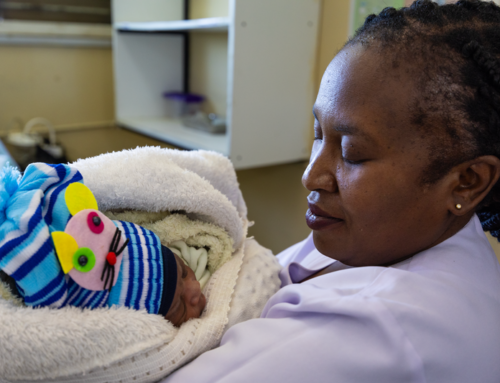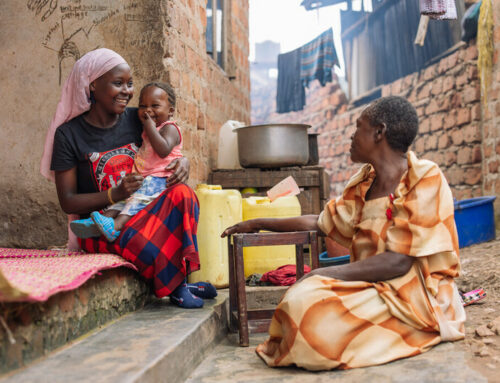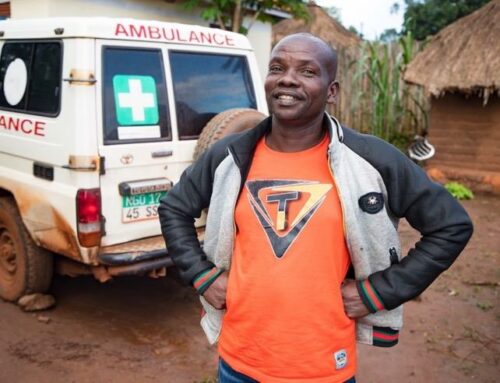Giving families access to safe sanitation facilities
Today, 445 million women and girls do not have access to a toilet.
Anna used to be one of these women. Anna is a mother of three and lives in Busia County, Kenya. Before constructing a toilet and bathroom for showering on her homestead, Anna and her children would relieve themselves in the bushes, open fields or near a river.
When it was time to bathe, Anna would go to a nearby stream or river after sunset. When the rains came, the water would flow through her home, bringing all manner of waste with it.
This all changed when Anna met Mary, a Community Health Worker who persuaded Anna to construct a toilet and shower to keep herself and her family healthy.
According to Mary, Anna’s family often suffered from diarrhea and typhoid and her children often missed school. “Their health was bad because they did not practice safe sanitation. Her family often had diarrhea which is directly caused by open defecation.”
Anna is now a proud owner of a latrine and a shower where her family can safely and privately bathe. Thanks to Mary, she now knows that open defecation increases the risk of spreading diseases: “When Mary visited my home, she educated me on the importance of having a toilet and a hand washing facility.”
The latrines were constructed by artisans trained by Amref Health Africa using locally made interlocking bricks commonly known as makiga. The bricks are easy to make using locally available materials, making them affordable for local households. The artisans we train are also able to repair the facilities they build so that they last long after we leave.
Anna knows very well what this new toilet means to her: “This toilet has given me a sense of pride. It has provided privacy and my family no longer develops diarrheal diseases since we now follow the best hygiene practices that Mary taught us, such as washing hands with soap after visiting the toilet,“ she says.




